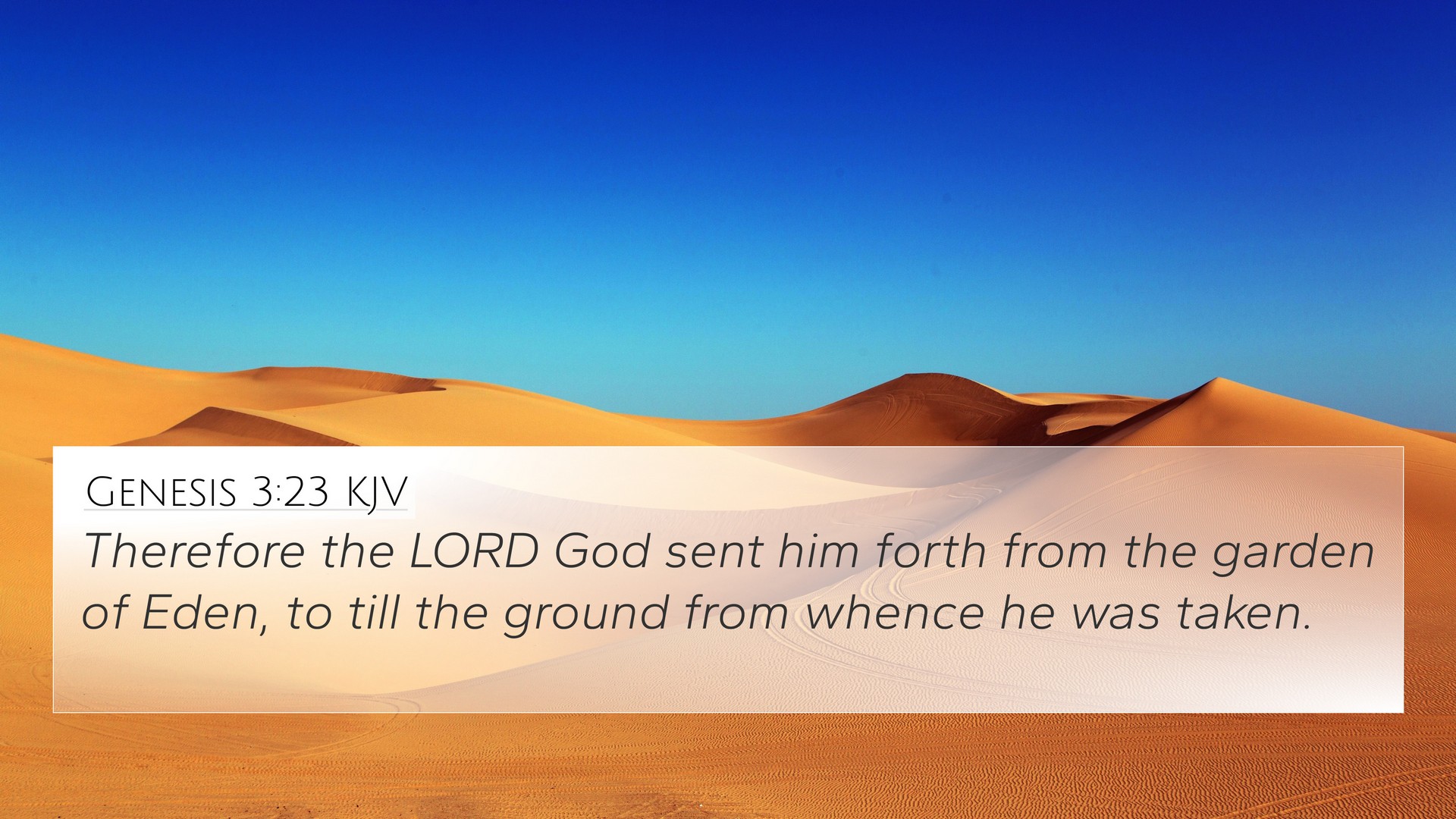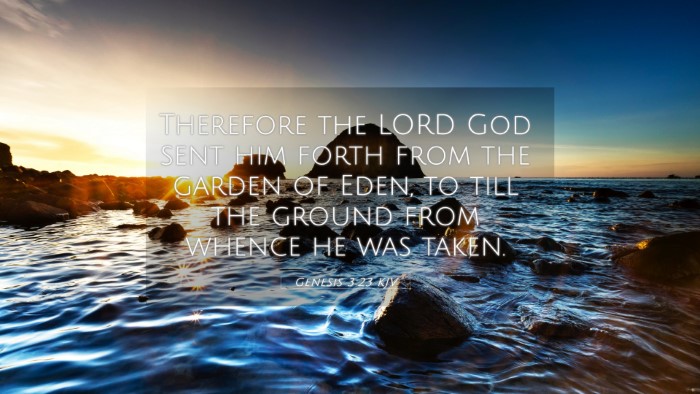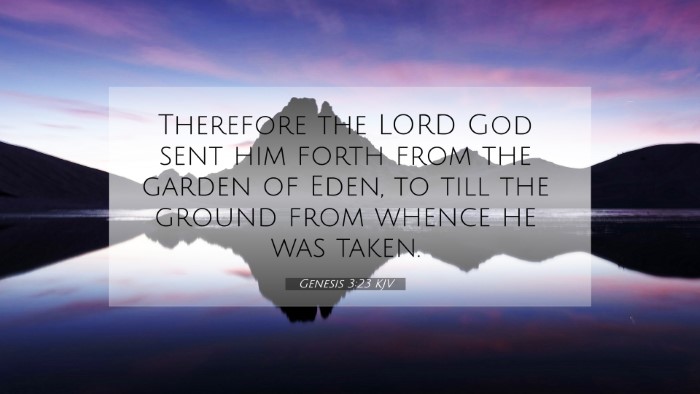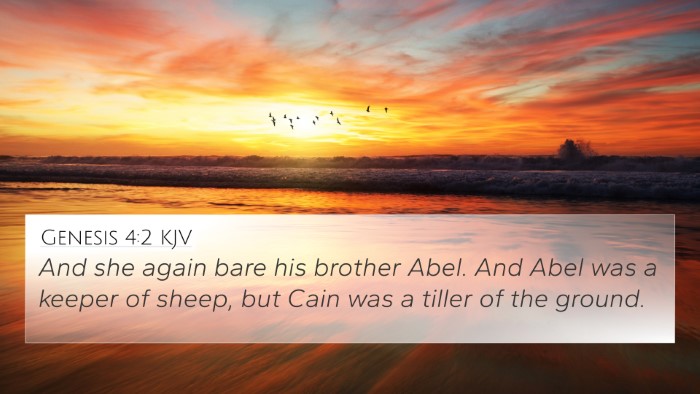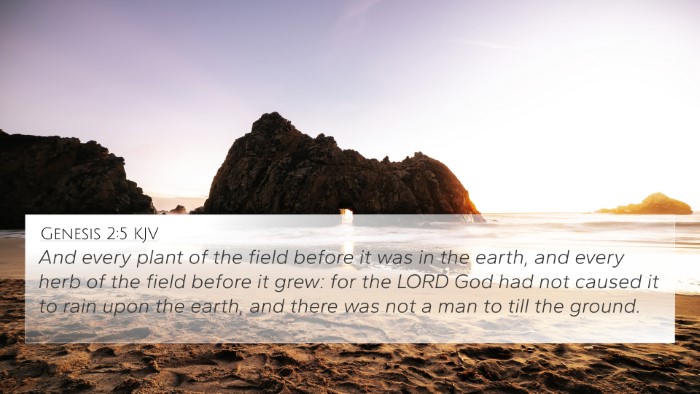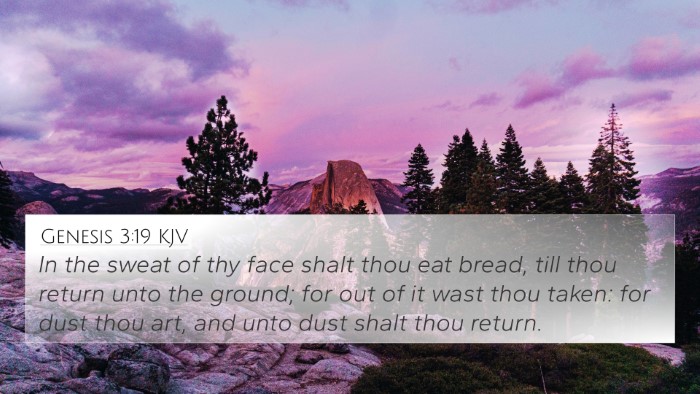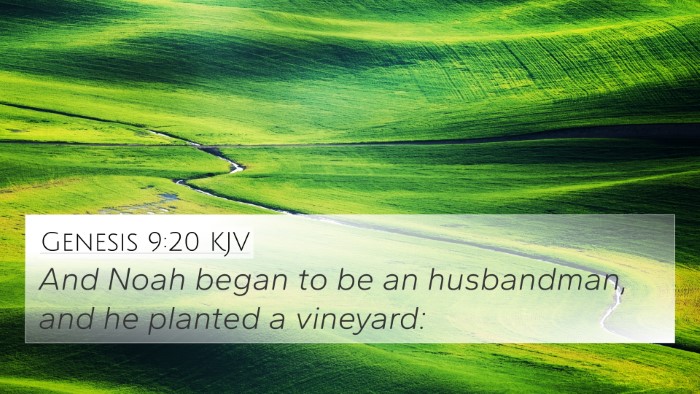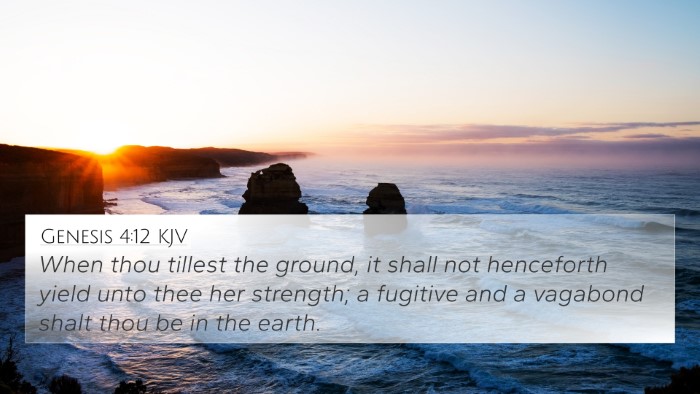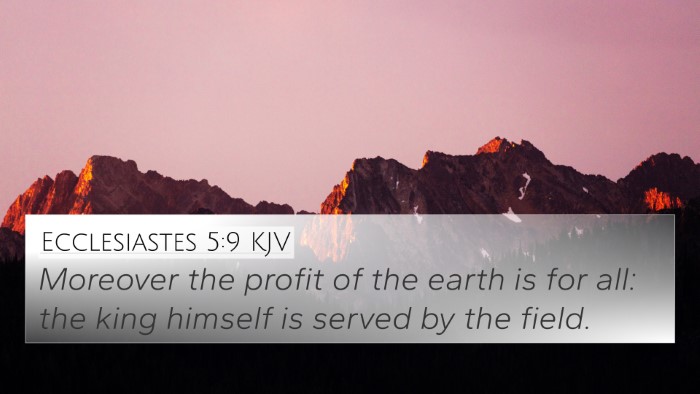Understanding Genesis 3:23
Genesis 3:23 states: "Therefore the LORD God sent him forth from the garden of Eden, to till the ground from whence he was taken." This verse marks a pivotal moment in the biblical narrative, highlighting the consequences of humankind's disobedience to God.
This summary combines insights from various public domain commentaries, including those by Matthew Henry, Albert Barnes, and Adam Clarke.
Summary of Key Insights
- Matthew Henry: Emphasizes that Adam’s expulsion from Eden was both a judgment and a mercy. While it was a consequence of sin, it also prevented Adam from living eternally in a fallen state. Henry notes that Adam was assigned a new role of tilling the ground, indicating a shift from a life of ease to one of labor.
- Albert Barnes: Points out the significance of the garden being a place of divine presence and purity. Being cast out symbolizes separation from God and the loss of perfect communion with Him. Barnes stresses that work was not a punishment but a part of human responsibility bestowed before the fall.
- Adam Clarke: Discusses the idea that this act of sending Adam away from Eden was necessary for fulfilling God's plan. Clarke highlights the importance of the ground Adam was sent to till, drawing attention to the notion that human labor is integrated into God's creation and purpose.
Thematic Bible Verse Connections
Genesis 3:23 interlinks with various Bible verses that illuminate its themes:
- Genesis 2:15: “The LORD God took the man and put him in the Garden of Eden to work it and take care of it.” This verse establishes human responsibility in Eden, connecting to Genesis 3:23 where that responsibility continues outside the garden.
- Romans 5:12: “Therefore, just as sin entered the world through one man, and death through sin, and in this way death came to all people, because all sinned.” This verse draws a parallel to the consequences of Adam’s original sin, resonating with the expulsion described in Genesis 3:23.
- Genesis 4:12: “When you work the ground, it will no longer yield its crops for you.” Reflects the ongoing struggle in toil as a consequence of sin, relating closely to Adam’s new role post-expulsion.
- Hebrews 11:13-16: Discusses the idea of living in a foreign land and looking for a heavenly home, which parallels Adam's new life separated from Eden's paradise.
- Revelation 22:3-5: Speaks to a restoration of paradise where God's presence is made complete again, contrasting with the current condition established in Genesis 3:23.
- Matthew 7:20: “Thus, by their fruit you will recognize them.” Emphasizes the work one produces, echoing the labor Adam was given outside of Eden.
- 1 Corinthians 15:21-22: “For since death came through a man, the resurrection of the dead comes also through a man.” Highlights the significance of Adam’s actions leading to universal impact, tying into the theme of consequences present in Genesis 3:23.
- Exodus 3:5: God commands Moses to remove his sandals for being on holy ground, reminiscent of Eden’s sacredness lost in Genesis 3:23.
- Isaiah 65:17: Envisions a new creation, contrasting the lost paradise of Eden, hinting at future restoration after the fall introduced in Genesis 3:23.
- Galatians 6:7: “A man reaps what he sows.” This reflects the theme of consequences central to Genesis 3:23, representing the results of one’s actions.
Cross-Referencing Biblical Texts
From this analysis, we can see how Genesis 3:23 serves as a foundational text for understanding human toil, separation from God, and the overarching narrative of redemption throughout the Scriptures. The interconnectedness of these verses create a robust framework for exploration in Bible cross-reference studies.
Conclusion
In understanding Genesis 3:23, we gain insight into the profound implications of human sin and the resulting structural changes in God's plan for humanity. The labor assigned to Adam underscores a shift from divine ease to earthly toil, which reverberates throughout the biblical narrative.
